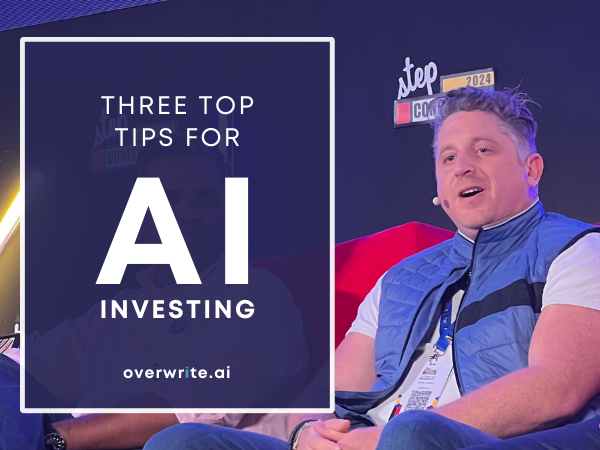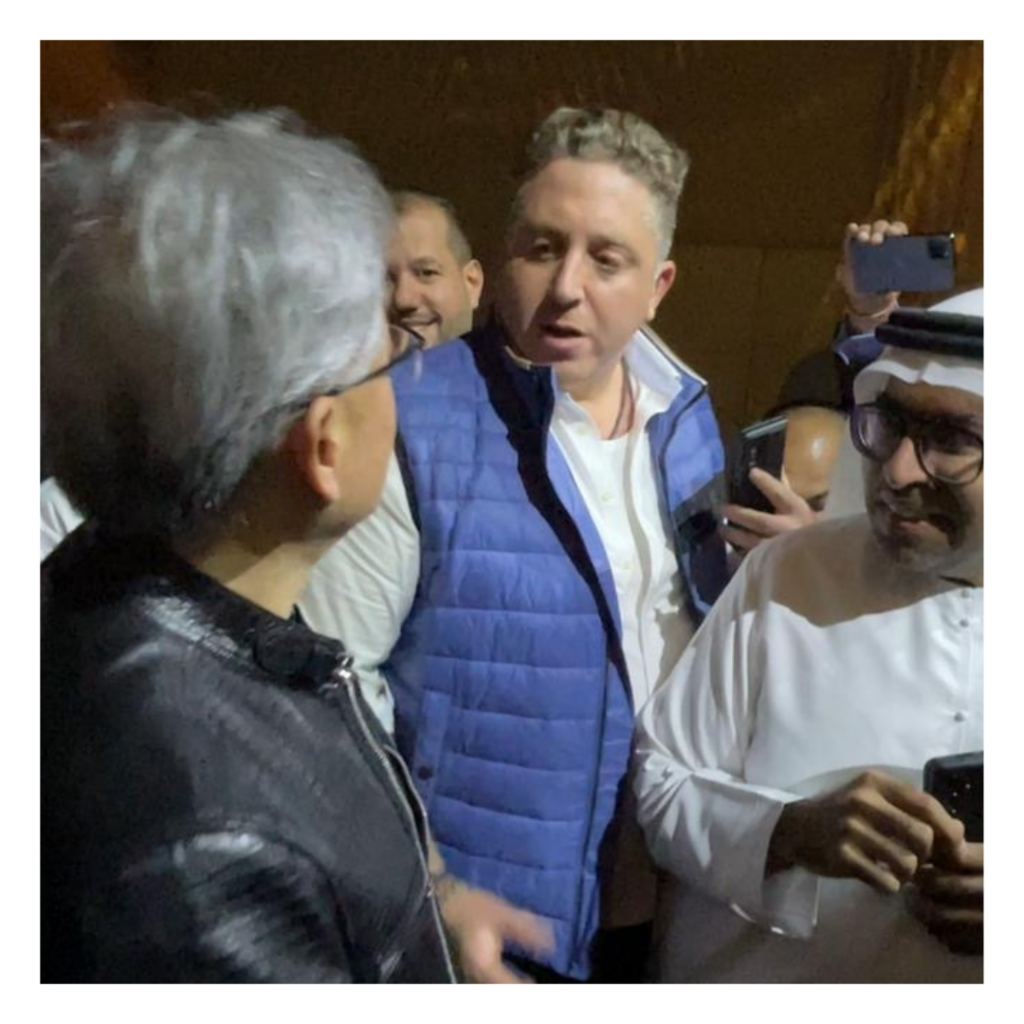We just wrapped Step 2024, Dubai’s biggest startup conference of the annual calendar, where I had the pleasure of sharing some of my top tips for successful Artificial Intelligence investing.
If you’re a startup Angel, Venture Capitalist, or a business manager who is looking at AI investment, read on. By the end of this short article, I’m hoping to give you a little clarity on how to make a cursory assessment of the opportunity you’re looking at.
First for some Context.
I’ve been an AI Investor and startup Founder for five years. During that time we’ve made mistakes that’ve cost us. And we’ve made some clever decisions that have proven to be almost prophetic.
One of the best early decisions we made was to treat Artificial Intelligence as a financial asset class in its own right. As you would Stocks or Real Estate.
From that vantage point, any investor can make sense of an AI investment, with these 3 tips.
1. Boring is Sexy.
One of the simplest ways to detect whether someone’s pitching you a genuine AI investment or AI Snake Oil, is to probe their knowledge of AI.
You’ll be surprised how many people are pitching you something they barely understand. Many an investor has parted ways with precious capital in exchange for promises of glory and sackfuls of BS.
AI is a broad term. It is many intelligent automation methodologies. Generative AI is one. There are others. Anyone talking to you as though all AI is GenAI, is a hard pass.
AI is not all things for all instances. You want to invest into AI use cases that operate in the background, performing their specific tasks to a high standard in a narrow domain. An unsung operational hero.
Narrow, boring AI beats Sexy AI for investment security, every day of the week.
2. Is it a Bird or a Plane?
Investing into Artificial Intelligence is not the same as investing into an AI-enabled business. This is critical to understand for any would-be startup investor or business looking to commit capital to AI.
AI is a tool. Many startup investment opportunities present themselves erroneously as Artificially Intelligent when they aren’t. They’re just AI-enabled businesses, using the tool to do what they do.
Whereas investing into AI technology is an intellectual property play. Investing into an AI-enabled business is a revenue play. The former is asset-backed. The latter is not.
In real estate terms, when you invest into AI it’s as if you’re buying a property. Its value is inherently the bricks and mortar that it comprises, making your investment asset backed. Meaning it can not collapse to zero worth. It’ll always have residual value no matter what. And it’s yours. You own it, together with the benefits derived from it.
When you invest in an AI-enabled business, be under no false illusion. As successful as the business may potentially be, it’s not AI that you are investing into.
To use the real estate analogy again, AI-enabled investment is like buying a structured product that pays you a non-securitised yield from the rent of a property. It’s not asset backed. There’s no AI ownership to it. If for some reason the AI which the business uses fails, so does your money.
Golden rule. When you’re investing into AI, you’re a Landlord. When you’re investing into an AI enabled business you’re further downstream, with rental revenue but no recourse or underlying asset in your name. Both are investable, so long as you know where you stand.
3. Risk On. Risk Off.
I say it often. Sound investment is not about maximising profit. It is first and foremost about mitigating risk. Understand where the risks to your investment are. If the business you’re investing into depends on the functional integrity of an AI system it doesn’t own, then your business is at the mercy of someone else.
Most investors don’t realise just how exposed their investment is to third party dependency risk. Whether you’re investing into new technology, or a startup business, there’s already plenty of risk involved. Don’t unnecessarily compound it with a lack of knowledge as to where your risks lie. Do your homework. And if needed, look for people who have been in the AI trenches to help you define risk and mitigate for it.
The Price of Perfection.
Millions of MENA investment capital was squandered during 2023 because of the hysteria around Open AI’s ChatGPT, and it’s ok because that’s how mistakes are made and learnt.
As a result today we’re seeing more deliberation, a greater understanding of the applicability of AI, and more targeted, efficient capital investment decisions.
Like I said at the beginning of this piece. I’ve made my own mistakes. Learned lessons from them. Lessons I’m hoping can be of use to you.
Ayman Alashkar is the Founder and CEO of overwrite.ai, and the Ex Head of Real Estate for Emirates NBD’s Private Bank.
He is a recognised AI industry pioneer and a regular speaker on the MENA region’s Artificial Intelligence and Entrepreneurial speaking circuits.
overwrite.ai develops proprietary Artificial Intelligence to solve for inefficiencies in MENA’s +$2.4 Trillion dollar real estate industry.
For informative news and views on the world of real estate, proptech and AI, follow overwrite on Instagram and LinkedIn, and keep up-to-date with our weekly NewsBites blog
overwrite | real estate content creation, reimagined








